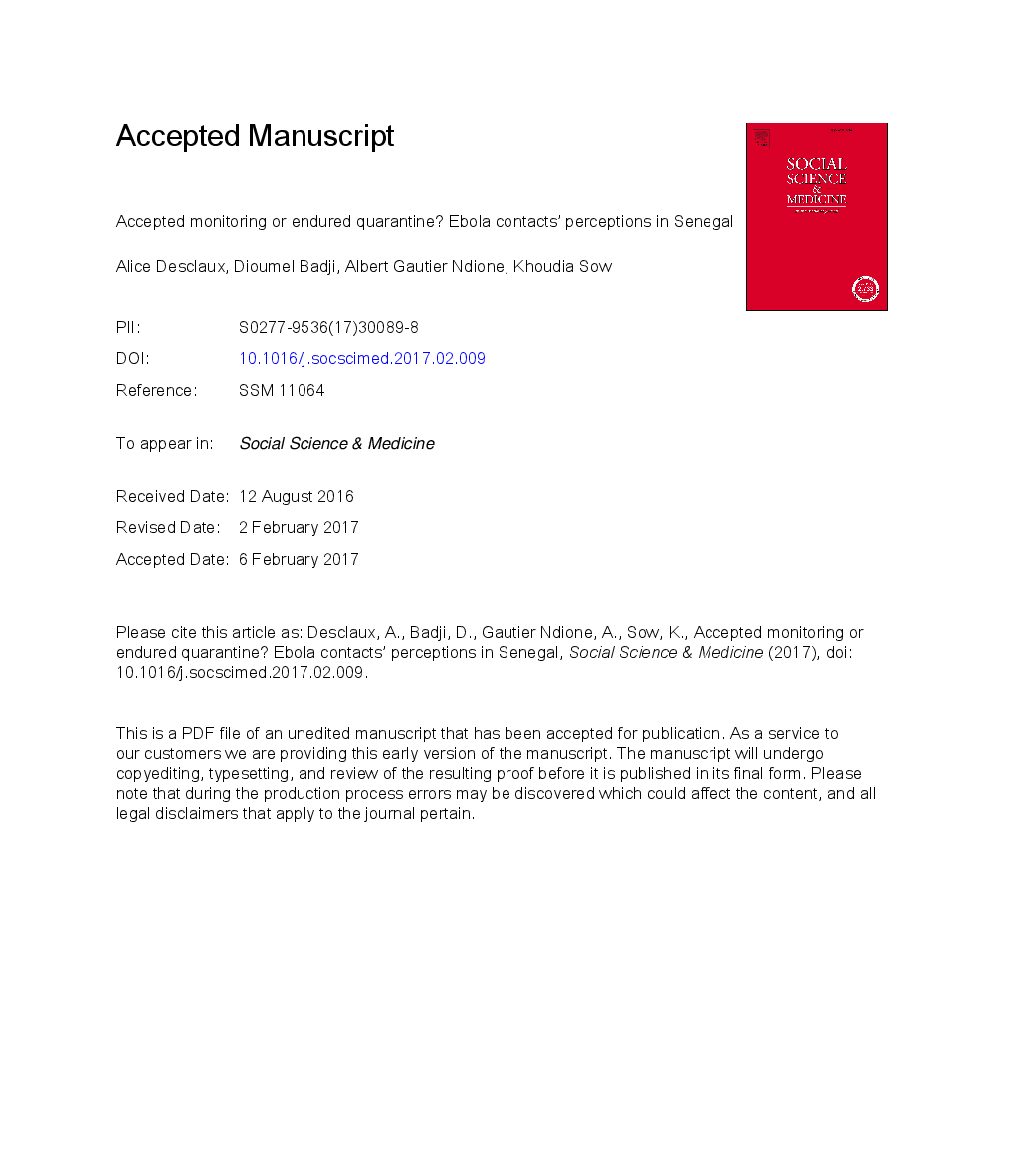ترجمه فارسی عنوان مقاله
نظارت را پذیرفته یا قرنطینه را تحمل کردید؟ ادراک مخاطبین ابولا در سنگال
عنوان انگلیسی
Accepted monitoring or endured quarantine? Ebola contacts' perceptions in Senegal
| کد مقاله | سال انتشار | تعداد صفحات مقاله انگلیسی |
|---|---|---|
| 156456 | 2017 | 28 صفحه PDF |
منبع

Publisher : Elsevier - Science Direct (الزویر - ساینس دایرکت)
Journal : Social Science & Medicine, Volume 178, April 2017, Pages 38-45
ترجمه کلمات کلیدی
سنگال، آفریقا، ابولا، تماس ردیابی، دور زدن اجتماعی، اخلاق، قرنطینه،
کلمات کلیدی انگلیسی
Senegal; Africa; Ebola; Contact tracing; Social distancing; Ethics; Quarantine;

